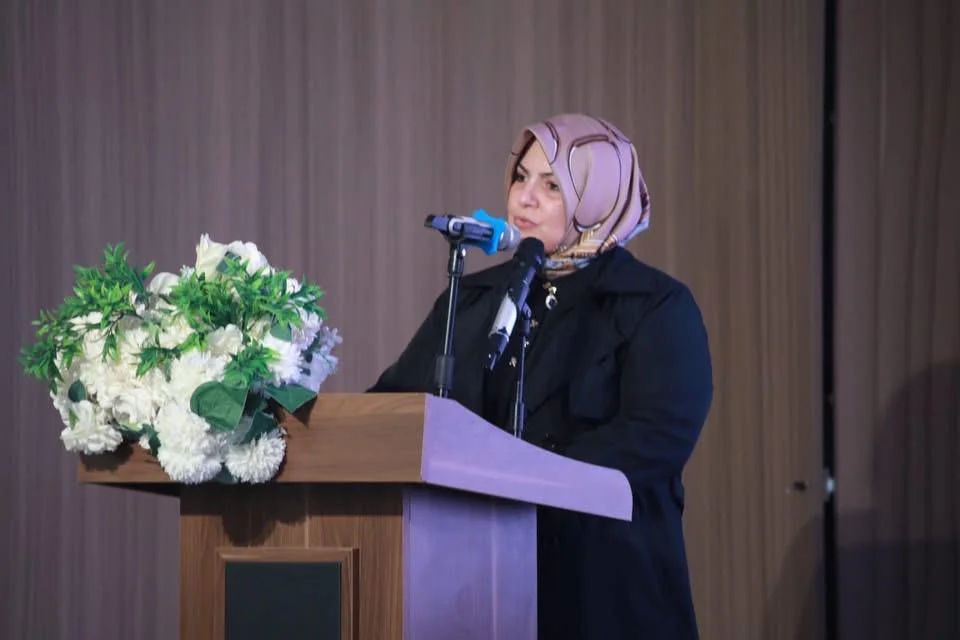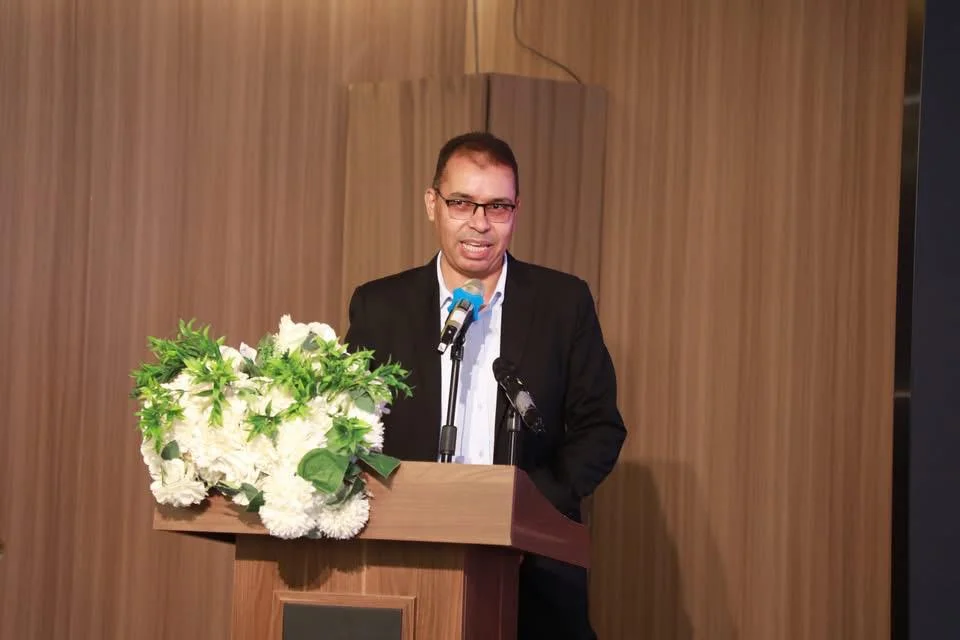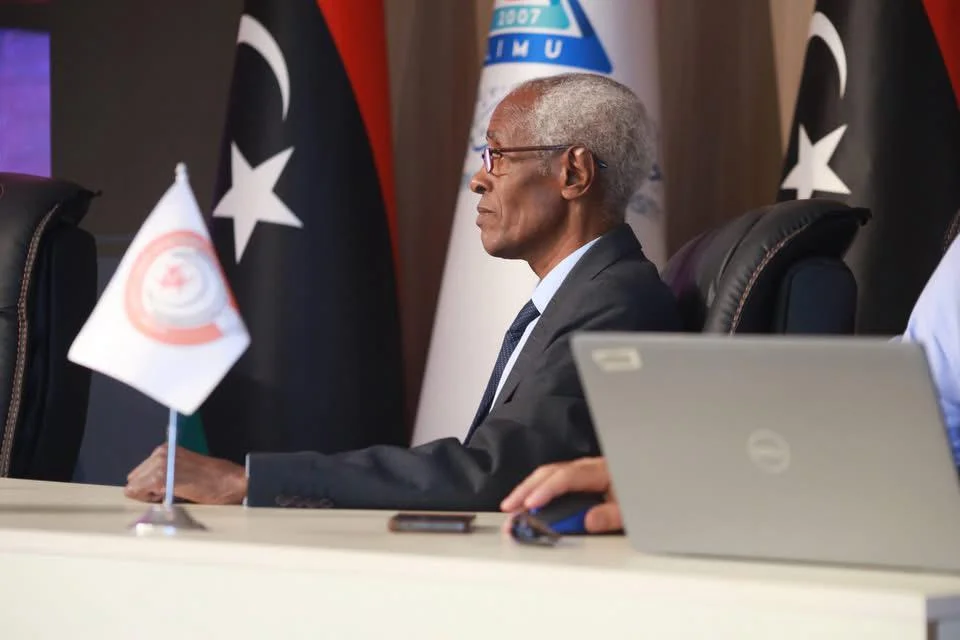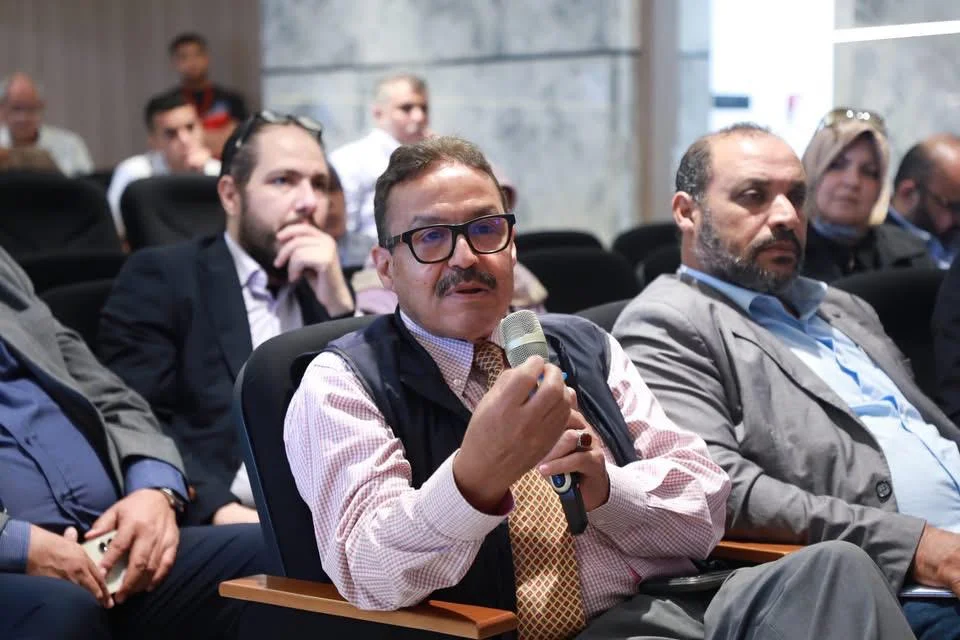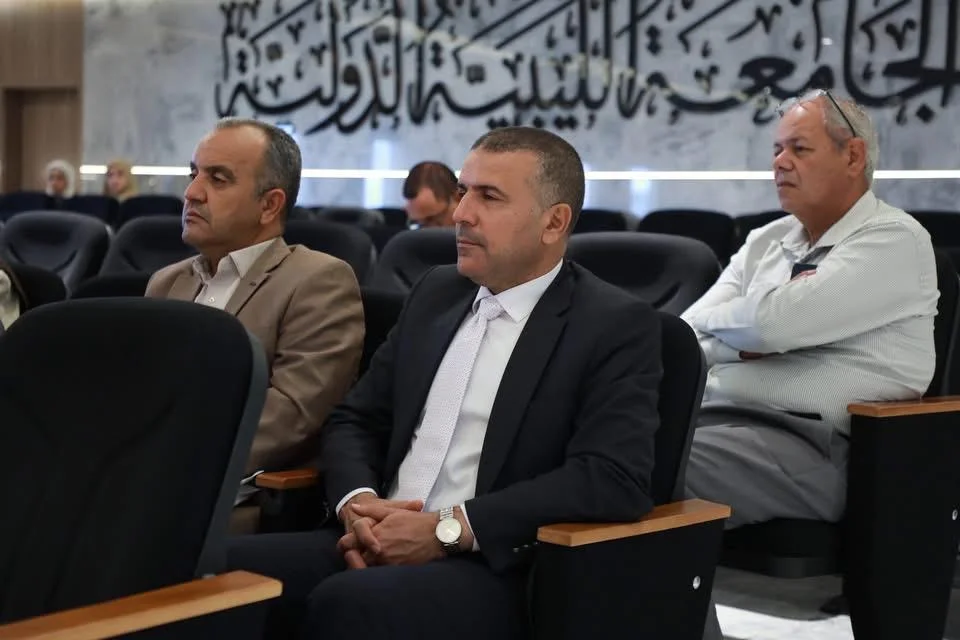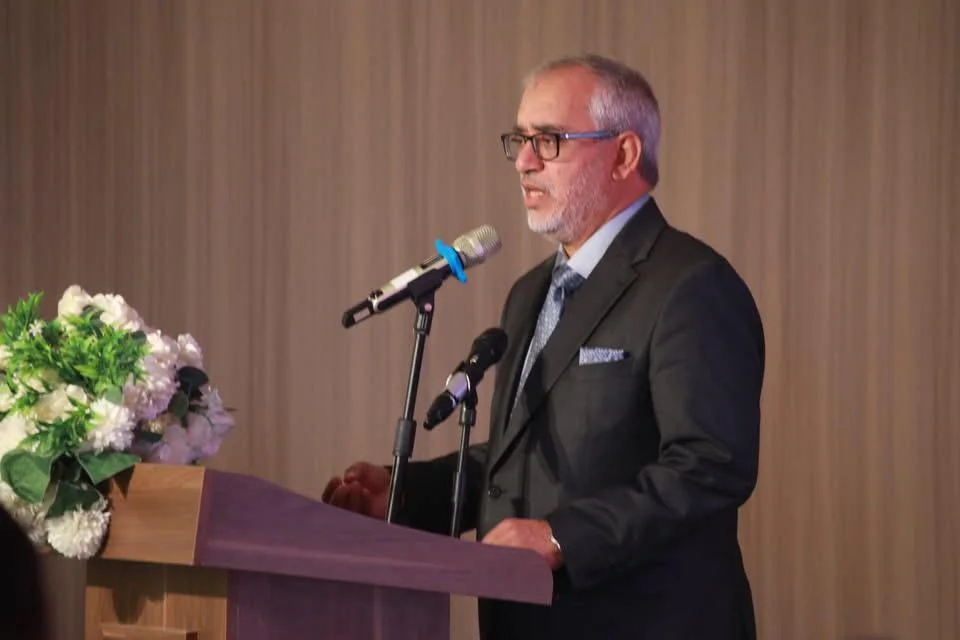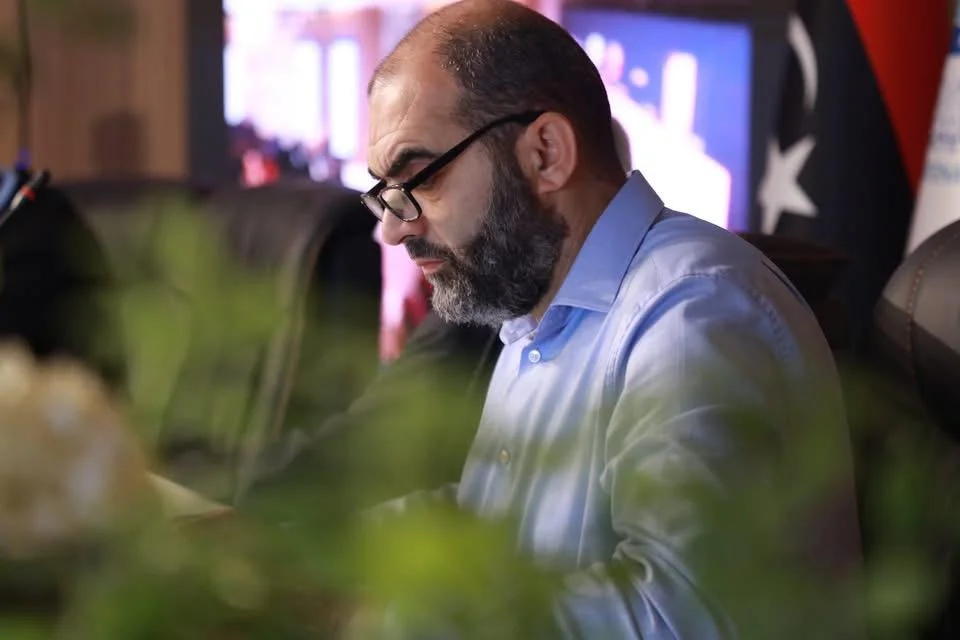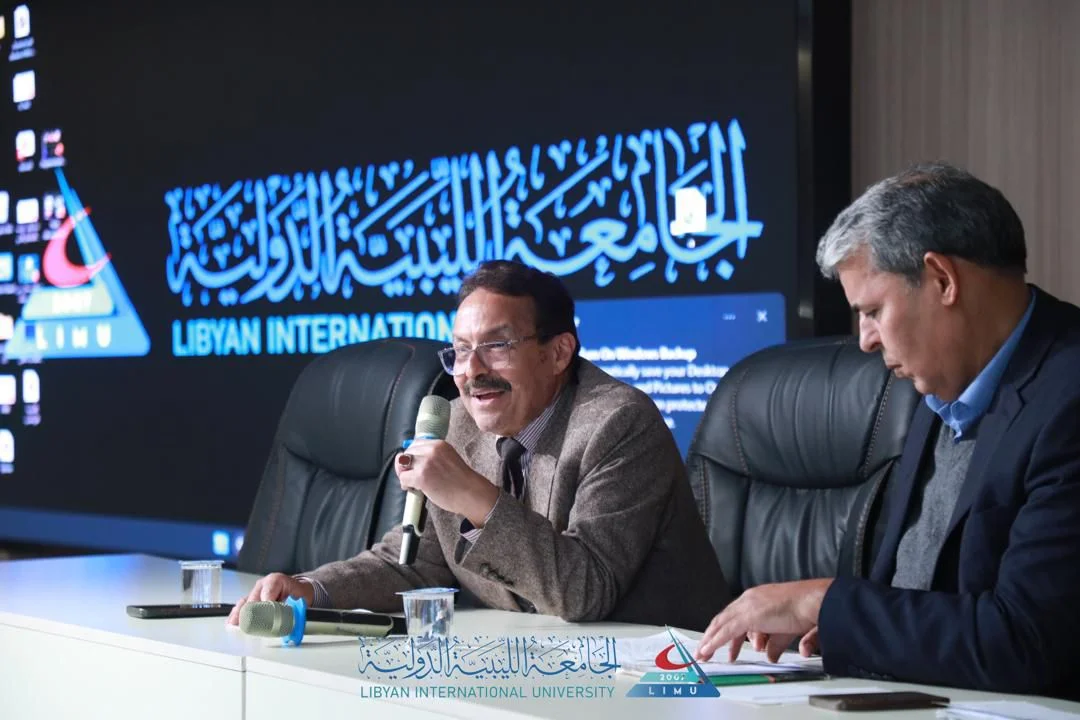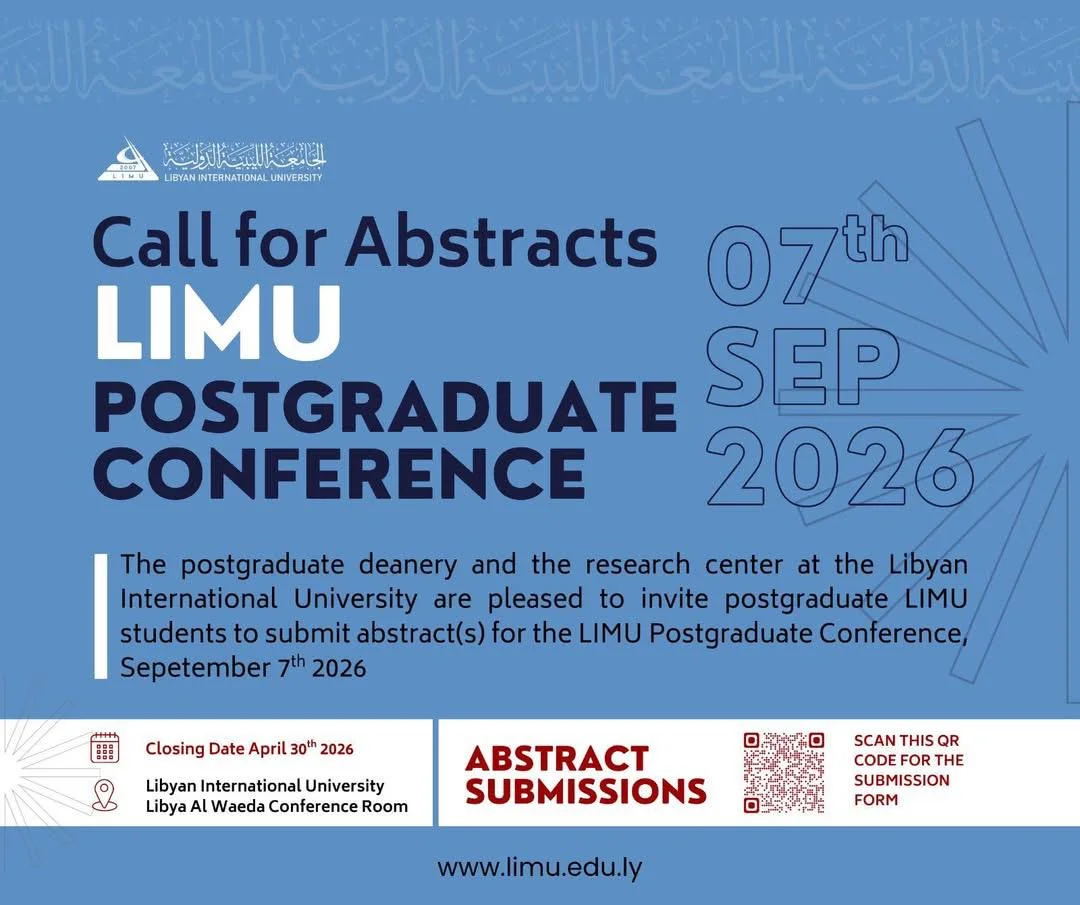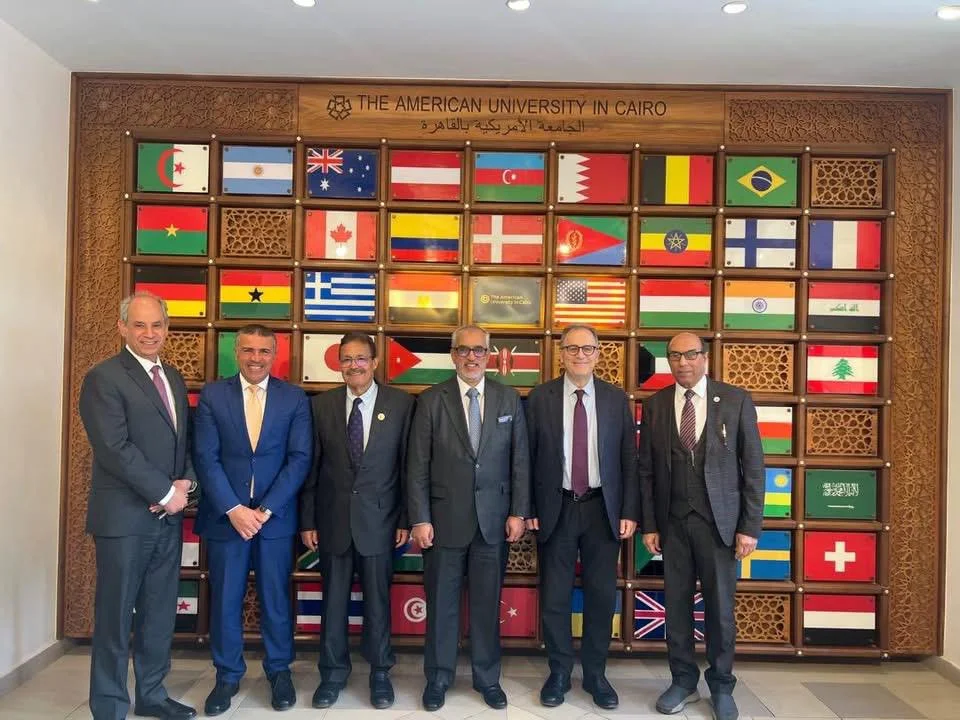The “Promising Libya” Hall at the Libyan International University (LIMU) was buzzing on Wednesday morning, October 29, 2025, with the launch of a specialized workshop. The event, held under LIMU’s patronage, was organized by the National Committee for Biosecurity and Bioethics.
The workshop was well-attended by key figures, including the Chairman of the National Committee, Professor Dr. Abdulqader Al-Sahhaki; the Vice-Chairman, Dr. Mounir Al-Sharif; the LIMU President, Professor Dr. Mohamed Saad Ambarak; and the designated Head of LIMU’s own Subcommittee for Biosecurity and Bioethics, Dr. Mirvat Al-Zawki. Crucially, the event saw broad participation from approximately 26 subcommittees from institutions across the country.
The workshop, aimed at subcommittee members, was titled “Bioethics: Between Theory and Application.” Dr. Mounir Al-Sharif officially opened the significant national scientific event, welcoming attendees from various Libyan cities, representing their institutions, centers, and universities. Dr. Al-Sharif also praised LIMU for hosting the event and providing all necessary resources, emphasizing the importance of this gathering in the National Committee’s continuous efforts to embed a culture of bioethics and raise awareness of its critical role in scientific research and general medical and health practice.
LIMU President, Professor Dr. Mohamed Saad Ambarak, stated: “We are delighted and proud to host the work of the National Committee for Biosecurity and Bioethics.”
He commended the Committee members for their unwavering dedication and perseverance despite limited resources, noting their full commitment to their scientific and ethical mission. Dr. Ambarak revealed that LIMU’s relationship with this committee is not new but long-standing, dating back to the committee’s founding and continuing through ongoing collaboration.
He then highlighted the challenges and milestones of LIMU since its founders decided it would be a unique model for education and learning, aiming to fundamentally change higher education by moving past rote learning and student marginalization. He stressed that LIMU strengthened the student’s role in research, making it a prerequisite for graduation, and established core values like social responsibility, sustainability, volunteer work, and networking with all community institutions.
The President wished the guests a pleasant stay in Benghazi, a city of reconstruction and stability, confidently moving toward the future, and wished for prosperity and stability across the entire nation.
Following the opening remarks, the workshop commenced. Dr. Abdul Majeed Hussein, LIMU’s Director of Total Quality Management, opened with a valuable, challenging lecture on the use of Artificial Intelligence in biomedical research: risks and improvement methods. This was followed by a solid lecture titled “Informed Consent: Planning and Implementation,” presented by Dr. Ali Bourwai.
A rich contribution was then made via Zoom by Professor Dr. Mouloud Al-Kouash, titled “Ethics in Practical Practice: Understanding the Institutional Review Board in Dental Research.”
The session concluded with a highly important study presented by Professor Dr. Abdulqader Al-Sahhaki, titled:
“Do We Need to Teach Bioethics as a Subject?”
The scientific session saw great interaction and highly valuable input from the committee members nationwide, both in person and virtually. The national scientific meeting concluded with the distribution of participation certificates, attended by the Chairman and members of the National Committee for Bioethics, the LIMU President, Professor Dr. Mohamed Saad Ambarak, and the designated Head of LIMU’s Subcommittee, Dr. Mirvat Al-Zawki.
The Communication Department, led by Ms. Najeeba Astita, was acknowledged for the crucial role played by all its components in the preparation, organization, and provision of everything needed for the success of this national scientific forum.
